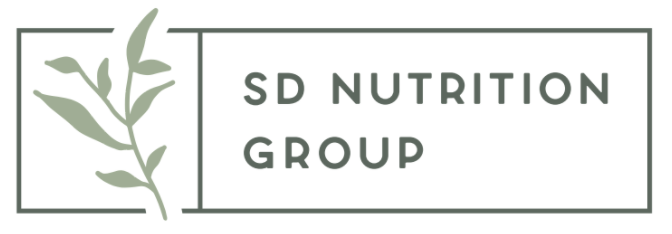Social Media & Diet Culture
Exciting news! On July 1st, Pinterest announced that they are updating their ad policies to prohibit all ads with weight loss language and imagery. This makes Pinterest the first social media platform to ban all weight loss ads completely. They were guided by the National Eating Disorders Association (NEDA) in updating their policy. This is a huge win for social media, which has always been deeply connected with diet culture messaging. You can read more about Pinterest’s policy changes here.
And while this is a victory against diet culture, there is still a lot of work to be done. Worldwide, the average person spends 2 hours and 25 minutes on social media every day. And 72% of the public uses some type of social media. That’s a whole lot of people using a whole lot of social media!
Influencers and brands have capitalized on the diet industry promoting all kinds of harmful messaging, ranging from detox teas to juice cleanses to strict diets and weight loss supplements. One recent trend that has been popping recently is the “what I eat in a day” post on the platform Tiktok, in which individuals with the “ideal” body type share what they eat and how much they exercise each day. These posts often promote undereating, overexercising, and an obsession with “healthy” eating. They promote the message “eat and exercise like me and you too can look like this”. Which is both untrue and harmful.
Diet culture in social media is deceitful. Many of the people giving diet and exercise advice have no degree or background in nutrition or exercise science. With the internet at our fingertips, it’s all too easy to find misinformation. A content analysis of weight-loss advertising in 2001 found that more than half of all advertising for weight-loss products made use of false, unsubstantiated claims.
On top of the diet and nutrition misinformation, diet culture promotes unrealistic beauty standards. The thin ideal is defined as the concept of the ideally slim female body, one that possesses a slender feminine physique with a small waist and little to no body fat. Most of the images we see of celebrities and influencers are photoshopped and edited to some degree. Research shows that 94% of women on television are thinner than the average woman in the US. The people in the photos don’t even look like themselves in real life! Exposure to the thin ideal on social media has been linked to body dissatisfaction and disordered eating among women.
With all this harmful messaging out there, it’s now more important than ever to be mindful about how we use social media and to create a safe space for ourselves in the midst of diet culture. We need to practice being critical users of the media and utilize it in a way that is protective of our mental and physical health. Here are 3 tips for doing just that:
Be choosy about who you follow
You are in charge of what and who you follow on social media. If following certain accounts makes you feel anxious, feels damaging to your self-esteem, or makes you feel like you have to eat, exercise, dress a certain way, or be a certain size to be happy- those are all goods signs that you should hit the “unfollow” button. You can also use social media as a force for good by exposing yourself to people of all different body types and demographics. Use it to follow anti-diet and body positivity accounts. Choose to consume media that aligns with your values and builds up your self-esteem and confidence. Like following us on Instagram @sdnutritiongroup ;)
Limit screen time
If you have an iPhone, you might get those “weekly screen time reports”. I know I’ve been called out by those a time or two! We spend way too much time on our phones. And while social media can be a great tool for a lot of things, it often gets in the way of connecting to ourselves and to the present moment. And the more time we spend exposed to diet culture messaging and images online, and more vulnerable we are to the comparison trap. Are there one or two times throughout your day where you can replace screen time with something more meaningful?
Remember that social media is not reality
Social media is everyone’s “highlight reel”. It’s not real life! People are only showcasing the finest moments, coolest experiences, and most “Instagram worthy” images. In addition to that, so many of the images we see of bodies on the internet and social media are heavily edited and photoshopped to look like the “ideal” body. These images we see are not representative of the average human body, and set up an unattainable standard. Social media is not real life. It’s a filtered, edited, and carefully curated one. No one’s real life looks like it does on the internet.
~
And while we are celebrating Pinterest’s ban on weight loss ads, we also acknowledge that the media still has a long way to go. The media still has a very narrow view of beauty and health. Taking back control of how we engage with social media is just one way that we can take diet culture out of the driver’s seat. When we engage with media that aligns with our own values, it becomes a tool to help build us up, rather than tear us down. What’s one way that you use social media mindfully? Or what’s one change you’d like to make (or have made) in how you use social media?
References
https://www.pewresearch.org/internet/fact-sheet/social-media/
https://blog.hootsuite.com/social-media-statistics-for-social-media-managers/#Social_media_usage_statistics
https://www.ncbi.nlm.nih.gov/pmc/articles/PMC6861923/
https://en.wikipedia.org/wiki/Thin_ideal
https://www.nationaleatingdisorders.org/media-eating-disorders
